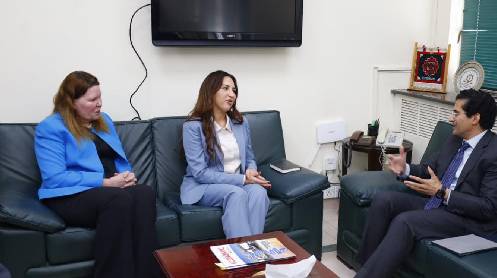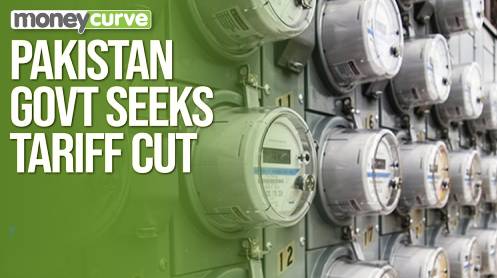The Italian Trade Agency (ITA), the official Agency of the Italian Government which promotes the globalization of Italian firms under the aegis of the Ministry of Foreign Affairs, in collaboration with the Embassy of Italy in the UAE, presents the Italian expertise on sustainable and renewable technology at the virtual edition of Water, Energy, Technology, and Environment Exhibition (WETEX).
Today marks the official opening day of the first-ever carbon neutral 3D virtual exhibition which runs until October 28, and Amedeo Scarpa, Italian Trade Commissioner to the UAE, Oman and Pakistan shares insights on what Italy brings to the region.
This is the first year a virtual WETEX exhibition has been held; how has the interest been from Italian companies to participate?
This is the 14th year that the Italian Trade Agency has a pavilion – albeit virtually this year – and we are hosting 31 exhibitors, an increase from 22 in 2019. Although 2020 has undoubtedly raised challenges due to the pandemic, it’s still a strong market. We’re excited for this year’s format of WETEX 2020. We received a lot of interest – removing the need for a physical presence has actually allowed a larger and wider range of companies from Italy to participate. Italian companies are keen to reap the opportunities of cooperation offered by the UAE and the Gulf region in terms of supply of goods and technology transfer as well as of provision of consultancy services.
The 3D virtual environment will be equipped with an exhibition area, stands and booths. There will be a live chat facility integrated into the virtual platform so attendees can interact directly with exhibitors.
What products and services will you have on offer?
Along with the 31 companies that we carefully selected and have brought to the fair, we will showcase the latest Italian advancements in sustainable and renewable technology, covering a cross-section of the country’s expertise in the sector. These developments on water treatment, recycling, solar energy generation and renewables, air control and environmental protection systems, and green building systems have contributed to Italy’s recent energy savings’ great performance with a reduction of 43 million tonnes carbon emissions last year, which made us among the best EU and world performers.
I believe that Italian expertise and technology advancement in these fields perfectly match the UAE and Region’s strategy to reduce energy consumption by preserving natural resources and finding energy-efficient renewable solutions. In this respect, flexibility, creativity, innovation and quality – that are at the forefront of Italy’s technological capabilities and know-how – can clearly provide a great contribution to the efforts of finding new solutions, processes, products and business models the UAE and the Region are looking for.
How buoyant is the sustainable and renewable technology market in the UAE?
The renewable energy sector in the UAE has not been adversely affected by the pandemic. In fact, being one of the UAE’s preferred suppliers for renewable energy sector components in the last three years, we (ITA Dubai) has witnessed a notable increase of 16.47% in exports in the first trimester of 2020.
The UAE remains committed to advancing sustainability across all sectors of the country’s economy – as seen in the set target to achieve at least half of its energy needs from clean energy sources by 2050, offering many business opportunities. DEWA has some exciting projects on the horizon including the Green Hydrogen project, the first solar-driven hydrogen electrolysis facility in the Middle East and North Africa; and the Shams Dubai initiative to encourage customers to install solar photovoltaic solar panels to generate electricity and connect them to the power grid.
The Emirates and its neighboring countries are re-defining their energy and environmental policies. In this context, the development and deployment of transformational technologies for cleaner and more efficient energy is fundamental to addressing economic diversification challenges and to promote long-term prosperity. Moreover, the thematic issues at the core of Expo2020 (opportunity, mobility and sustainability) clearly go towards addressing the “commons” the Region and the whole world are facing today.
What are the existing collaborations in sustainability have been made between the UAE and Italy? Are there any plans or new developments in the pipeline?
We are involved in many areas of collaborations. One of them is the deployment of smart grids and second-generation smart metering systems. CESI, a technical consulting and engineering company from Italy, signed a contract with Dubai Electricity and Water Authority (DEWA) to provide consultancy services related to connecting renewable energy generators to the DEWA grid; and this smart grid connection agreement even expanded to other countries in the GCC. Italy’s energy company ENEL and DEWA work together to increase knowledge sharing in smart grids and network digitalisation. These are key enabling technologies, that will allow consumers to become real active actors of the energy systems and will provide them with completely new services (e.g. prepaid contracts of electricity, similar to the prepaid telecomm mobile contracts). Italian Ambienthesis and Sharjah company Bee’Ah enetered a joint venture for the use of green technologies in the waste treatment and renewable energy production.
Two years ago, the two Governments also signed a MoU to promote joint projects, favours experts exchanges and implements capacity building in the field of climate change and sustainable development. And we aim to further strengthen this cooperation at most-awaited fair Expo 2020, where the Italian Pavillion is being built using recycled materials.





